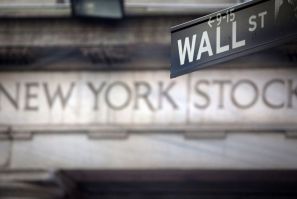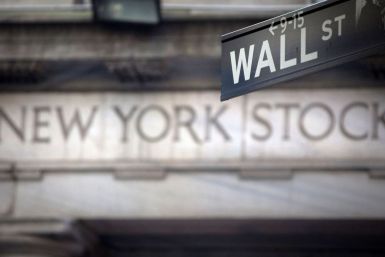U.S. stock indexes fell on Monday, with the earnings season set to kick off in earnest this week amid concerns of weaker corporate profit due to the impact of surging inflation.
U.S. stock indexes slid on Monday, with the earnings season set to kick off in earnest this week amid concerns of weaker corporate profit due to the impact of surging inflation.
Chile's tumbling currency and runaway inflation are testing the Andean copper giant's economic and financial systems, and complicating President Gabriel Boric's plans to push through a tax reform bill to fund ambitious social programs.
Euro zone finance ministers said on Monday the fight against inflation was the current priority despite dwindling growth in the bloc, as they were informed of a deteriorating economic outlook by the European Commission.
Euro zone bond yields fell sharply on Monday while long-term inflation expectations dropped below 2% as recession fears deepened after warnings about a possible cut in Russian gas supplies.
Hedge funds had a torrid second quarter, but their faith in the dollar paid off spectacularly.
Hedge funds had a torrid second quarter, but their faith in the dollar paid off spectacularly.
Asian companies are likely to find it harder to refinance dollar-denominated debt, the decline in a key metric suggests, with the currency at a two-decade high and a recent surge in inflation forcing central banks to raise interest rates.
Oil prices were little changed on Monday as markets balanced an expected drop in demand due to mass testing for COVID-19 in China against ongoing concerns over tight supply.
Oil prices fell around $1 on Monday in volatile trade, reversing some gains from the previous session, as worries about a recession and China's COVID-19 curbs hitting demand outweighed ongoing concerns about tight supply.
Oil prices were unsteady on Monday, with Brent trading higher on supply concerns while West Texas Intermediate (WTI) dipped, as traders balanced supply concerns against worries about a recession or China's COVID-19 curbs hitting demand.
The euro slid to a 20-year low and came closer to parity against the dollar on Monday on concerns that an energy crisis will tip the region into a recession, while the U.S.
The dollar climbed to a 24-year high on the yen on Monday after Japan's ruling conservative coalition's strong election showing indicated no change to loose monetary policies, and global growth fears helped the safe-haven U.S.
The dollar was on the front foot at the start of a week in which U.S.
Bank of Japan (BOJ) Governor Haruhiko Kuroda on Monday warned of "very high uncertainty" over the economic outlook and stressed anew the central bank's readiness to ramp up stimulus as needed to underpin a fragile recovery.
World equities and U.S. bond yields fell on Monday as investors prepare for fresh inflation data and corporate earnings that may be seen as potentially influencing the Federal Reserve's path ahead for interest-rate increases.
Shares slid on Monday as investors braced for a U.S.
Caution gripped share markets on Monday as investors braced for a U.S.
Asian shares started cautiously on Monday as investors braced for a U.S.
Japan's core machinery orders slipped for the first time in three months in May, hurting hopes that a pickup in business spending would offset pressure on an economy struggling with surging costs of energy and other imports due to a weak yen.
Zambia's official creditors are expected to offer it financial assurances by the end of July, paving the way for the first debt restructuring under a G20 framework set up during the height of the COVID-19 pandemic, two sources briefed on the matter said.
The International Monetary Fund's board of executive directors met on Friday to discuss the $44 billion Argentine programme for the first time since Silvina Batakis' appointment as economy minister, two people with direct knowledge of the meeting said.
Copper output at Peru's huge Las Bambas mine has returned to normal levels after a two-month shutdown due to protests was ended last month, sources and power usage data show, but talks over a deal with community leaders have stalled, threatening more tensions.
U.S. economic growth could fall below 1% this year and remain sluggish through 2023 as the Fed acts "resolutely" to curb inflation, New York Federal Reserve president John Williams said Friday.
Another blowout jobs number will likely stiffen resolve at the Federal Reserve for a three-quarter-point interest rate increase at the central bank's July meeting, as the welcome news of a still-strong job market clashes with concern that it will eventually have to cool to ease inflation.
Bank of England regulators are concerned about an increase in the number of failed transactions in the British government bond repo market, which they said "reflected very poorly" on the City of London's reputation.
U.S. stocks slipped in choppy trading on Friday after a robust jobs report stoked fears of aggressive interest rate hikes by the Federal Reserve to keep inflation in check.
Wall Street closed little changed on Friday after a volatile session as investors tried to comprehend how a robust jobs report would influence the Federal Reserve and its plans to aggressively hike interest rates.
Wall Street's main indexes were set for a lower open on Friday after stronger-than-expected jobs data added to expectations of another big rate hike by the U.S.
Italy's labour market was hit harder than those of most of its European Union peers during the COVID-19 crisis of 2020 and 2021, widening the employment gap compared with the EU average, national statistics bureau ISTAT said on Friday.





































